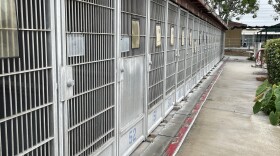It's the first controversial element of the new health law to take effect: Starting Thursday, people who partake of indoor tanning services will pay a 10 percent tax to help underwrite the costs of the rest of the new law.
Tanning salon owners are outraged. They say the new tax is the last thing they need in a struggling economy. But dermatologists hope the new tax will deter indoor tanning -- which they say is every bit as dangerous as baking in the sun -- the same way tobacco taxes have helped cut down on smoking.
"The tax could hit an estimated 18,000 small businesses nationwide, jeopardizing thousands of jobs and unfairly hitting working women and college students, who comprise the majority of indoor tanning customers," said a joint statement from the Indoor Tanning Association, the International Franchise Association and the National Federation of Independent Business.
"Relaxed" is one of those businesses. It's a spa and tanning salon located in the heart of the George Washington University campus, just blocks from the White House. And owner Kris Hart is one of those who are not happy about the new tax.
"I'm already struggling to pay my bills, and now I have to add on another one," he says.
And Hart says he's likely to be affected less than many other salon owners, since he serves a fairly upscale clientele.
Indeed, GW student Christina Zottola -- who says she comes to get tanned as often as three times a week right before a vacation -- says she doesn't think a 10 percent tax will have much of an impact on her tanning habits. "No," the very tan 19-year-old says, laughing. "It won't."
But Zottola says there is one thing that might stop her from tanning in the future. "It's not about the money, but probably about not a good choice to keep tanning," she says.
Tanning Beds Increase Risk For Melanoma
Hearing that from a very tan 19-year-old is good news and bad news for people like Allan Halpern. He's chief of dermatology at Memorial Sloan-Kettering Cancer Center in New York and vice president of the Skin Cancer Foundation.
Halpern says he's glad that some people are becoming aware that tanning isn't healthy. But most people still don't realize that it's just as bad for your skin to get a tan as it is to get sunburned. "The tan is a response to damage," he says. "By definition, if you see the tan, it's because your cells have sensed they've been damaged by ultraviolet" light.
And getting tanned in a tanning booth to lay down a "base" to prevent sunburn is no way to prevent skin cancer. In fact, says Halpern, just the opposite is true.
"Over the years, the data has become increasing conclusive," he says. "And those studies are all consistent -- that regardless of the type of tanning bed that you're using, it increases your risk of developing melanoma."
That's why Halpern and his fellow skin cancer specialists are happy to see indoor tanning being taxed. The question, though, is how big the tax has to be before it actually changes behavior. With tobacco, there's been a lot of research, and the studies are pretty clear.
"The studies show that for every 10 percent increase in the cost of a pack of cigarettes, you get a corresponding decrease in overall consumption of about 4 percent," says Greg Haifley of the American Cancer Society.
And the decrease is even bigger for younger smokers, who are more sensitive to price. But it's not clear whether the tanning tax will have the same impact, or whether 10 percent will be enough to make a difference. Doctors like Halpern clearly hope it will.
Tanning Industry Not Happy
But the idea that the federal government would impose a tax to try to address a public health concern infuriates people like tanning salon owner Hart.
"I don't know when it was that the government was assigned in the Constitution to be my doctor," Hart says. "I think I should make decisions about how I exercise, what I eat, who I'm with and what activities I do. You know, before they know it, they'll start taxing people for not going to the gym."
The new tax is estimated to raise $2.7 billion over the next 10 years.
Copyright 2022 NPR. To see more, visit https://www.npr.org. 9(MDAzMjM2NDYzMDEyMzc1Njk5NjAxNzY3OQ001))






